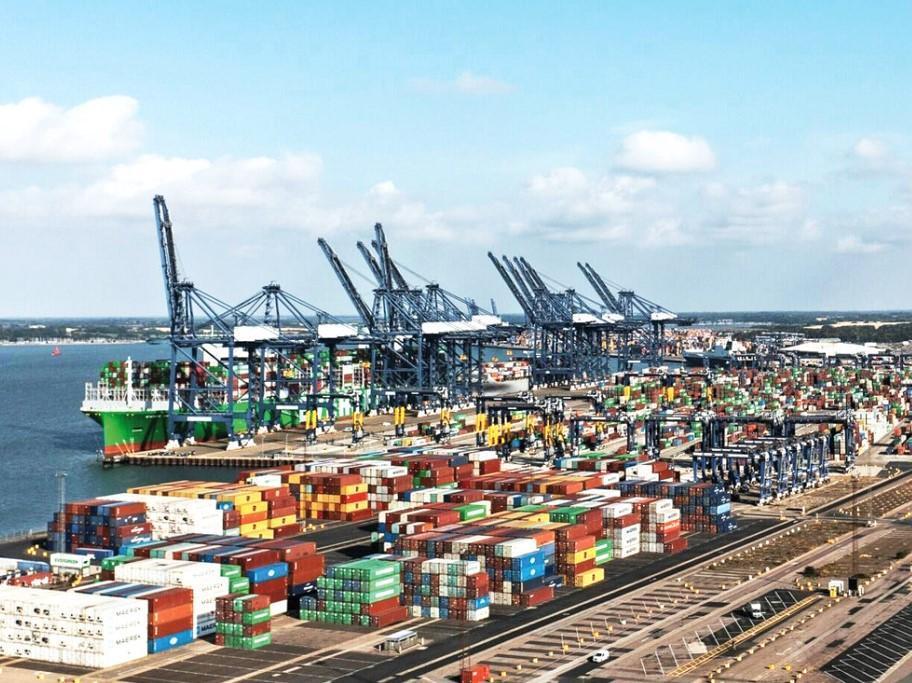UK port strike threatens to deepen supply chain woes
LONDON

A strike over pay at Britain’s largest container port threatens to spark fresh delays and rising costs for companies and consumers alike, but logistics experts say there should be no product shortages.
Workers at Felixstowe port in southeastern England on Aug. 21 began an eight-day strike, the first in 30 years, as decades-high inflation intensifies a cost-of-living crisis.
U.K. workers are striking in vast numbers as runaway inflation erodes wages at a record pace and is set to plunge the economy into recession.
“The strikes at Felixstowe are set to send some British businesses into a spin,” said Ed Winterschladen, executive vice president at Proxima, a logistics consultancy.
“The port is not just Britain’s largest, it is the largest by quite some margin as the port of entry for almost half of ocean freight into the U.K.,” he said, warning that delays “will have a sustained pricing impact in an already inflationary market”.
The dockers’ walkout mirrors similar action at the U.K. activities of U.S. online giant Amazon and British postal operator Royal Mail.
Those three strikes will together have a 1-billion ($1.2-billion) impact on trade and cause severe delays, according to delivery firm ParcelHero.
“The triple whammy of industrial actions at ports, postal networks and e-commerce giants means serious disruption,” said David Jinks, ParcelHero head of consumer research.
“Home deliveries will be affected, as will retailers waiting for new stock and manufacturers needing key components.
“Someone will have to foot the bill for all these increased transport costs and history tells us that it is usually the consumer.”
Felixstowe takes daily deliveries from nations such as China and Japan, with containers transporting everything from bicycles and frozen food to household appliances like fridges and washing machines.
They also carry key parts for manufacturers, so any major hold-ups could potentially worsen the nation’s post-Brexit supply-chain crunch.
However, industry body the British International Freight Association (BIFA) insisted that it was “too early” to assess the impact of the port strike.
Some companies are far more flexible after increasing inventory levels in the face of supply-chain problems sparked by the pandemic.
However, BIFA conceded that past Felixstowe disruption has had a knock-on impact on freight transport and international supply chains.
















